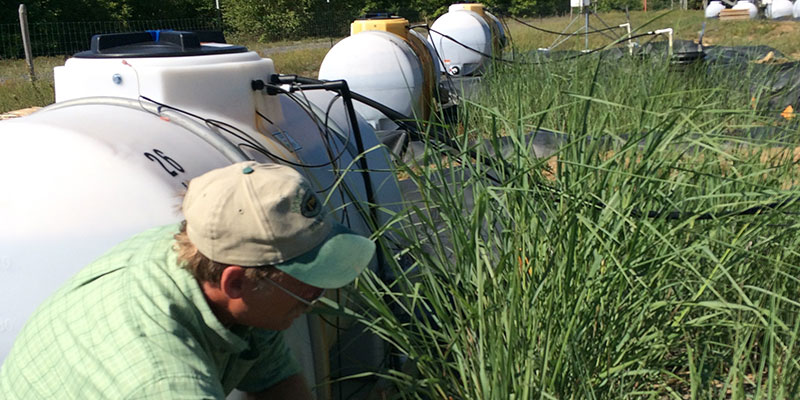
Engineering plants for the phytoremediation of explosives
Context
Explosives have become an extensive global pollutant over the last 100 years and there are mounting concerns over the toxicity of the military explosives RDX and TNT to biological systems. The potential for progressive accumulation of such compounds in soil, plants and groundwater is a significant concern at military sites.
The research
We have been uncovering the molecular mechanisms behind detoxification processes for explosives in plants and are using this knowledge to successfully engineer transgenic plants able to remediate explosives contaminated land. An innovative aspect of our work has been the use of genetic engineering to combine the biodegradative capabilities of explosives-degrading bacteria with the high biomass, stability and detoxification systems inherent in plants. As a result of our advances in knowledge of the biodegradation of explosives, we have developed transgenic switchgrass lines that have been recently successfully tested for the remediation of RDX in field trials in the U.S.
Project activities and publications
Monodehydroascorbate reductase mediates TNT toxicity in plants published in Science
Contact us
Centre for Novel Agricultural Products
cnap@york.ac.uk
+44 (0)1904 328776
Department of Biology,
University of York,
Wentworth Way,
York
YO10 5DD
Featured researcher

Neil Bruce
Professor Bruce's expertise is environmental biotechnology, biocatalysis, and biorefining.
Featured researcher

Dr Liz Rylott
Research into the sustainable range management of RDX and TNT by phytoremediation with engineered plants and the molecular biology of nitroamine degradation in soils.
Contact us
Centre for Novel Agricultural Products
cnap@york.ac.uk
+44 (0)1904 328776
Department of Biology,
University of York,
Wentworth Way,
York
YO10 5DD